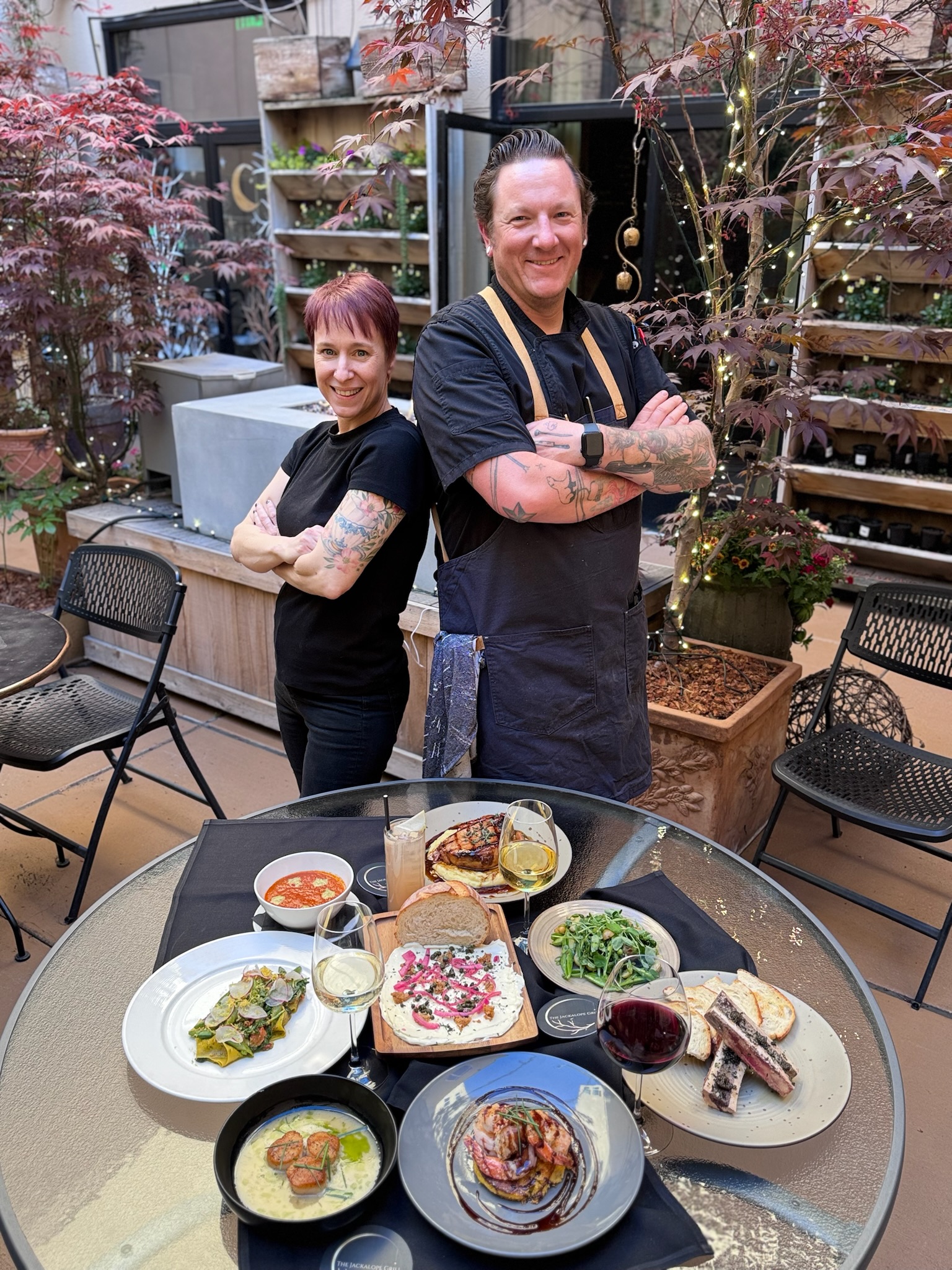’Grace and Frankie’: New wrinkles in comedy
Published 12:00 am Tuesday, May 12, 2015
People who complain about aging sound old. But “Grace and Frankie” is a senior angst comedy that somehow doesn’t seem fusty and out of date.
Actually, “Grace and Frankie,” a series that was available Friday on Netflix and stars Jane Fonda and Lily Tomlin, is funny and even touching. It would be very easy for this to be a bad knockoff of “The Golden Girls,” with grating one-liners and farcical pratfalls. It’s not an easy sell. In the era of streaming services, it’s shows such as “House of Cards” or “Transparent” that usually make the cut. This premise — two frenemies are forced together when their husbands announce they are gay and plan to marry each other — seems more like that of a conventional sitcom, which makes sense given that Marta Kauffman, a co-creator of “Friends,” is an executive producer.
Even the star power of its lead actresses isn’t necessarily a slam dunk: Fonda and Tomlin, who were co-stars in the 1980 comedy “9 to 5,” have recently had roles in some good projects but also some really bad ones, such as the 2014 film “This Is Where I Leave You,” in which Fonda starred.
So it’s a relief to see that “Grace and Frankie” is better than all that.
Fonda brings an underlay of vulnerability to Grace, a brittle, vain retired cosmetics executive, and Tomlin adds some sass to Frankie, a New Agey artist. Together, they pull this comedy about 70-somethings back from the brink of ridicule. It helps that the series is shot like a movie, albeit one from Nancy Meyers, with heroines who suffer under good lighting in fine restaurants and exquisite beach houses. Meyers, however, makes romantic comedies about older women who magically find Mr. Next. This series covers a later phase in life, somewhere between late-blooming love and assisted living.
And it’s been awhile since a series was so intently centered on the early-bird-special set. Betty White has a leading role in TV Land’s “Hot in Cleveland,” but she is not the focus; she serves instead as a white-haired foil to middle-aged single women on that show. Mostly, older stars are still cast as crusty grandparents or needy neighbors.
But generational anxiety seems to have fresh currency at the moment. Showtime recently introduced “Happyish,” a so-so comedy about younger upstarts elbowing aside their elders in an advertising firm. “Younger,” on TV Land, is better, and it covers the same clash of cohorts. It’s a comedy about a divorced 40-year-old suburban woman who pretends to be in her 20s so she can go back to work in publishing; she has to use Snapchat and get Brazilian waxes to fit in.
Netflix is hedging its bets. “Grace and Frankie” is pitched toward one demographic. This month, Netflix will stream six episodes of “Between,” a Canadian dystopian thriller about what happens to the fictional town of Pretty Lake after a mysterious disease starts killing everyone over the age of 21, leaving only the young to run the town. It’s not the “Lord of the Flies” scenario that makes “Between” scary; it’s the subliminal payoff: millennial wish fulfillment.
Television shows tend to reflect the preoccupations of their creators, and ageism is a fact of Hollywood life. It’s not just older actresses who feel discarded. Even people behind the camera crane their necks scanning the horizon for invading hordes of Visigoths — the ones on fixed-gear bikes with neck tattoos and blunt-cut bangs.
Grace and Frankie thought they would grow old with their husbands, not each other. The two women don’t actually get along but are forced to air kiss and feign affection because Grace’s husband, Robert (Martin Sheen), and Frankie’s, Sol (Sam Waterston), are law partners and best friends.
When the men announce that they are also longtime lovers and want to divorce their wives, Grace and Frankie are at first disbelieving and stunned, especially about why their husbands waited so long to come out. Robert explains that they now want to marry, because in California, at long last, they can.
“I know,” Frankie says bitterly. “I hosted the fundraiser.”
The women share indignation as well as panic, sorrow and anger. Grace complains that Robert and Sol get to live happily ever after and also hog the high road, since they are gay and not run-of-the-mill skirt-chasers. Had they left their wives for younger women they would be viewed as heels; in Malibu, at least, they are heroes.
Grace and Frankie find that without important husbands, they vanish. Old friends don’t call and strangers don’t even acknowledge them. In one scene, the normally poised Grace is incensed when a male supermarket cashier doesn’t turn to serve them or even acknowledge their waves, pleas and yoo-hoos. He has eyes and time only for a pretty young woman who saunters up asking for lottery tickets.
Grace has a screaming meltdown, and Frankie ushers her back to the car and reveals an upside: She stole a pack of cigarettes.
“We have a superpower,” Frankie says slyly. “You can’t see me, you can’t stop me.”
Grace and Frankie feel invisible, but here they stand out.






